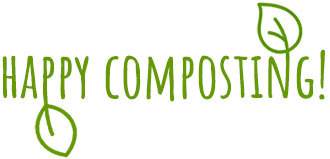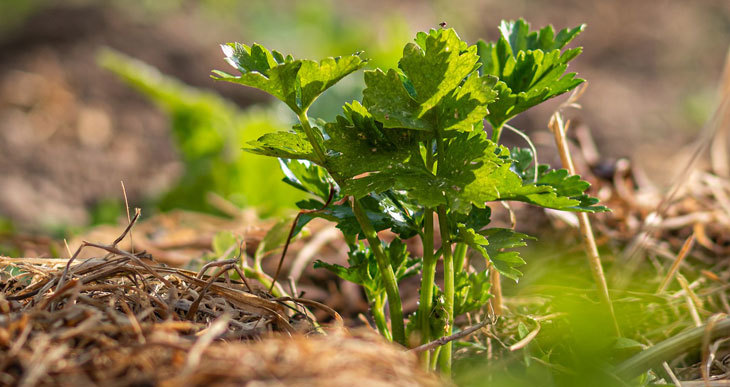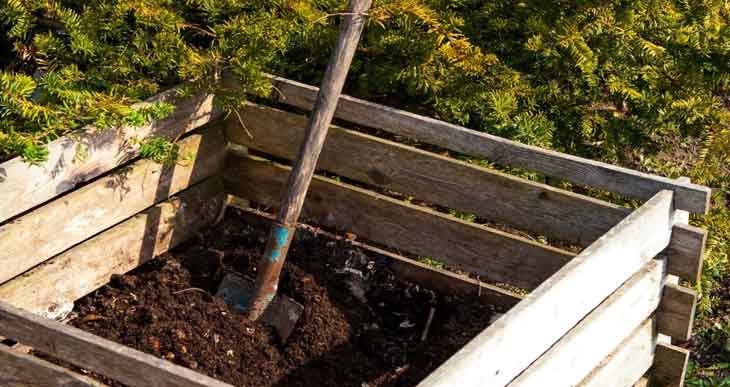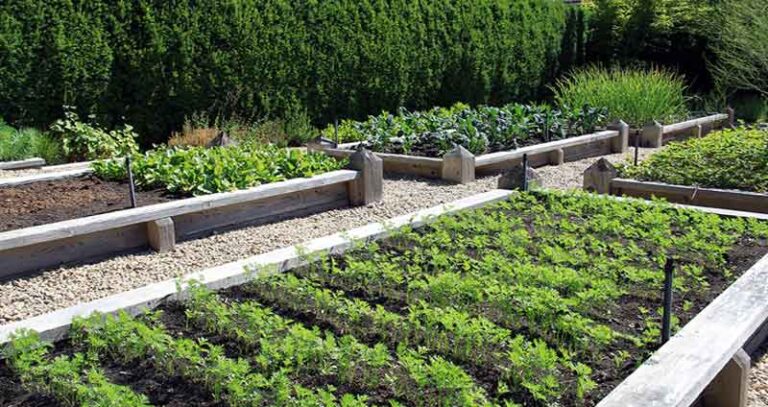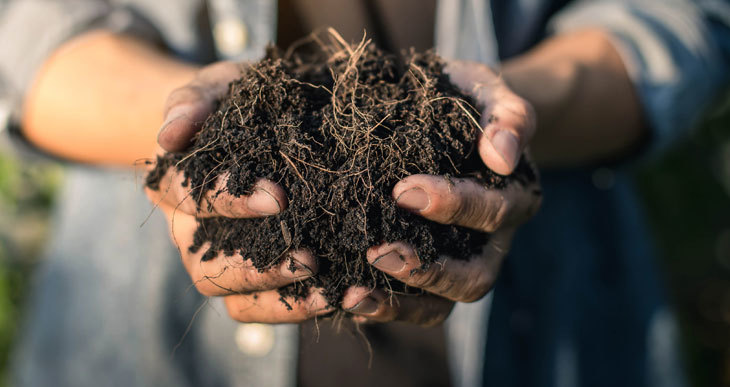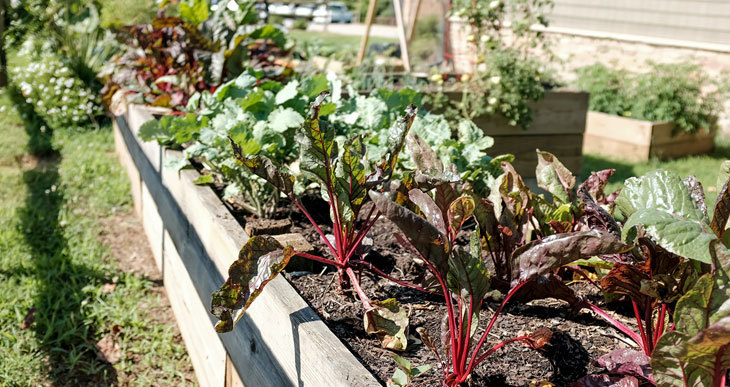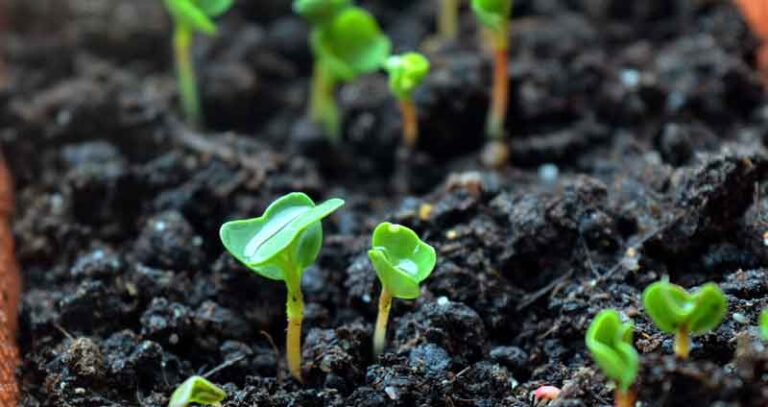Can You Use Compost As Mulch (Surprising Eco-Friendly Benefits!)
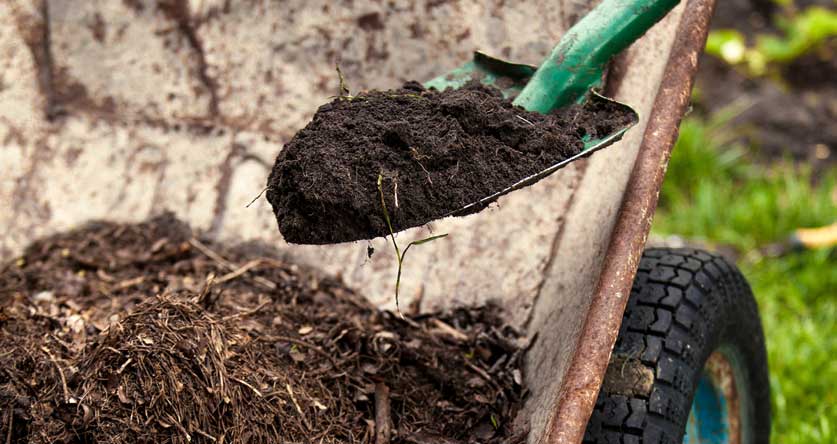
Okay…
You’ve heard that compost is a multi-tasking star that can also be spread on top of the soil to take the place of mulch.
Could you have been underestimating compost all this time? Can it really go either into the soil or on top?
It’s true: you can make compost double up as both a soil improver and mulch!
In this article, I’ll share how to get more from your compost.
I’ll explain how to use compost as mulch, what makes it stand out against other mulches, and whether it’s the right choice for your garden.
Using Compost As Mulch
The advantages of using compost as mulch are that it gives plants nutrients and improves soil condition in addition to standard mulching benefits like water retention, weed control, and a neater garden. The main disadvantage is that compost is less effective at fighting weeds than inorganic mulches.
Before we go deeper into the pros and cons of using compost as mulch, let’s check that we’re thinking of the same materials when we talk about compost and mulch (there’s overlap, so they’re easy to confuse).
By compost, I mean a mixture of decomposing organic wastes. This mixture includes browns (carbon-rich wastes like dry leaves and eggboxes) and greens (fruit and veg scraps and other nitrogen-rich wastes).
When I say mulch, I’m referring to organic and inorganic mulching materials.
Organic mulches are individual compost ingredients like dried leaves, grass clippings, newspaper strips, or bits of wood. Like compost, these materials decompose.
Inorganic mulches include rubber, plastic sheets, weed-barrier fabric, pebbles, and crushed rock. These materials don’t break down.
Then there are mulching materials that partially break down, like crushed eggshells and seashells.
Now let’s get back to what you want to know: is compost any good as mulch?
Can You Use Compost Instead Of Mulch?
Yes, you can swap out mulch for compost (and not be disappointed with the results) if your goal is to help the soil hold moisture, scare off weeds, and prettify your beds.
Suppose your main reason for mulching is to fight weeds. In that case, you’ll probably be better off with synthetic mulch like black plastic sheets or weed-barrier fabric. These materials are more effective than compost at blocking light, so weed seeds can’t germinate.
Another thing to remember when considering switching from mulch to compost is that compost is not as long-lasting as some other mulches. So, if you want your mulch to stick around for a while, go for something like bits of bark or wood chips rather than compost.
What Makes Compost Different From Other Mulch Materials?
The primary difference between compost and inorganic mulches is that compost decomposes.
The downside to this is that your mulch isn’t everlasting. But compost doesn’t just vanish. Instead, as it breaks down, it adds nutrients to the soil. Its organic matter also improves the soil’s condition, making it easier to work with and a better home for plants. And compost contains soil-friendly microorganisms and insects. These perks are worth the bother of a mulch top-up now and again!
Other organic mulches also enrich the soil as they decompose. Still, as compost is a mixture of ready-decomposed organic wastes, it gives the ground a more extensive range of nutrients.
Benefits Of Using Compost As Mulch
These are the top 7 benefits of using compost as mulch:
- #1: Compost adds nutrients to the soil.
- #2: Compost helps the ground stay moist and drain excess water.
- #3: Compost helps keep soil aerated.
- #4: Compost gives soil helpful microorganisms and insects.
- #5: Compost helps stabilize soil pH.
- #6: Homemade compost gets rid of organic kitchen and garden wastes.
- #7: Homemade compost is free.
So, Should I Use Compost Or Another Type Of Mulch?
Every type of mulch has its place in the garden.
Choose your mulch based on what you want it to do. Here’s a mulching cheat sheet to help you find the right mulch for your needs.
| Where You Need A Protective Layer | Your Perfect Mulch |
| Anywhere in the garden. | Compost. Either alone or mixed with another organic material like shredded leaves or newspaper, compost will make soil healthier wherever it’s added. Leaf mold. Seal shredded dry leaves in black plastic bags to break them down into mulch that can go anywhere in your garden. |
| On pathways or shrub borders, in perennial beds, or around trees, shrubs, and roses. | Bark. Choose your tree, texture (from fine to chunky), and whether you want a natural look or color. Wood chips. Go for chips made by processing tree or shrub trimmings, and watch out for those made from lumber or pallets (which can contain chemicals). Shredded leaves. Put the mountains of fall leaves to good use! |
| In veggie gardens or annual flowerbeds. | Leaves. Shred or compost the leaves before adding them to your garden to stop them from becoming matted or blowing away. Grass clippings. Only use dry, pesticide- and weed-free clippings. |
| In veggie gardens, strawberry patches, or around perennials, roses, and other delicate plants in winter. | Straw. Make sure it doesn’t have seeds. |
| In veggie gardens, on pathways, and around trees and shrubs. | Newspaper and cardboard. Stay away from colored, glossy newspapers and waxed cardboard. Layer whole sheets or strips, water well, and then add compost or wood mulch to stop the newspaper or cardboard from moving. Sawdust. Let the sawdust mature for a year before you spread it around plants. |
| In veggie gardens. | Black plastic. A plastic covering can create a weed-free, moist environment for crops. |
You probably spotted that compost is the most versatile mulch. It really is a gardening hero! So, if you need help deciding what mulch to use, choose compost!
How To Use Compost For Mulching
This is how I use compost for mulching in my own garden:
- I start by clearing away weeds and watering the soil I want to mulch.
- Next, I spread a compost layer and even it with a rake. Compost mulch can harm plants and trees if it gets too close, so I leave some space between the compost and vegetation.
- I then water the compost.
- Finally, I top the moistened compost with a thin layer of shredded leaves to keep the moisture locked in.
- I keep my eye on the compost mulch and add more when it needs bulking.
How Much To Use
Aim to make your compost mulch layer between 2 and 4 inches thick.
Apply thinner layers to beds containing herbaceous plants and be more generous where your priority is to prevent weeds.
Never go thicker than 4 inches. A layer this deep can make soil waterlogged, oxygen-starved, or too hot.
When To Apply
Schedule your compost mulching for springtime.
Add more compost as it shrinks during summer and fall, trying to keep the layer 2 to 4 inches thick.
You can also use compost mulch in the winter to insulate your plants against the snow and cold and keep them snug.
What Type Of Compost Is Best For Mulching?
The best compost for mulching is homemade, finished, and screened.
Composting can be as straightforward or as sophisticated as you want. If you’re looking for an easy option, most folks find tumblers extremely easy to use and maintain. Compost bins come a close second. This article will help you decide.
The Best Compost For Mulching Is Homemade
You control what goes into compost you make yourself, so you can pack in various greens and browns and keep nasties like weed seeds and pesticides out.
The Best Compost For Mulching Is Finished
Unfinished compost can rob nitrogen from the soil. Finished compost doesn’t have this downside.
The Best Compost For Mulching Is Screened
Screened compost is neater and free of tough, woody bits that take forever to break down.
